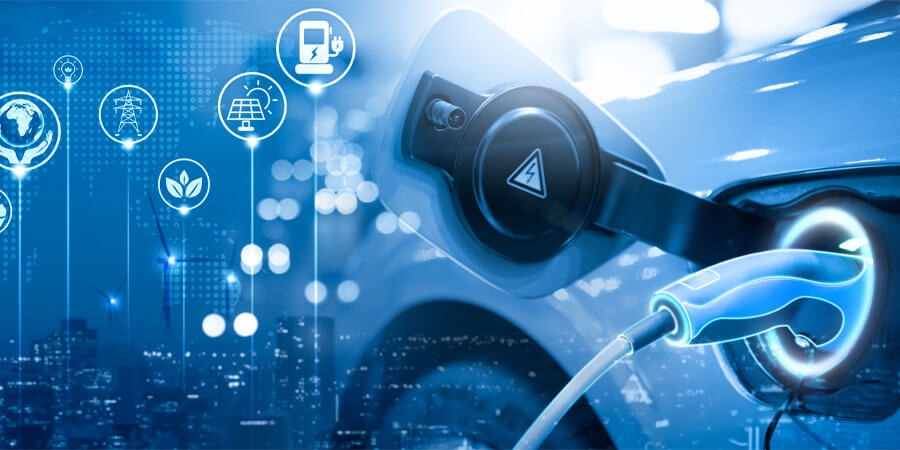While discussions often center around the growing popularity of electric cars in the US, Europe, and China, the spotlight is turning toward Africa. The continent is experiencing a heightened awareness of environmental issues, leading to the implementation of new policies and initiatives aimed at environmental protection. This increased focus on sustainability is driving a growing interest in electric vehicles (EVs) among the people of Africa.
As the world collectively shifts towards sustainable and eco-friendly solutions, Africa is emerging as a dynamic participant in the global transition to electric vehicles. Known for its abundant natural resources and diverse landscapes, the continent is embracing a new era of transportation that aligns with the imperative for environmental stewardship. At the forefront of this transformative movement is the increasing adoption of electric cars, not only addressing the challenges posed by traditional fossil-fuel-driven vehicles but also propelling Africa towards a cleaner and more sustainable future.
The decision to leverage Africa's minerals for manufacturing batteries for electric vehicles and assembling them locally carries profound implications, not only for the involved countries but for the entire continent. This strategic move signifies a shift towards a new industrial era, emphasizing the importance of transitioning to cleaner energy and battery-powered technologies as catalysts for Africa's industrialization. Unlike previous scenarios where Africa provided resources without reaping adequate benefits, there is a determined effort to add value locally, with some countries, like Zimbabwe, even restricting the export of important components like lithium.
Overview
The electric vehicles market in Africa is expected to achieve a revenue of US$85.6 million by 2024, with a projected annual growth rate (CAGR 2024-2028) of 17.33%, leading to an estimated market volume of US$162.2 million by 2028, and 4.19-thousand-unit sales of electric vehicles.
The volume-weighted average price for electric vehicles in Africa is anticipated to be US$39.5 thousand in 2024. This growing adoption of EVs can be attributed to government incentives and the increasing demand for sustainable transportation solutions. As of 2022, South Africa, the most advanced market in Africa, had approximately 1,000 electric vehicles out of a total fleet of 12 million automobiles, while Kenya had an estimated 350 EVs among approximately 2.2 million registered vehicles in use. Electric mobility is still in the developmental stage in Africa, with increasing sales but remaining comparatively low globally.
Leading the Way
Between 10-12% of Africa's greenhouse gas emissions stem from transportation, a figure likely to increase with a growing population and higher average income. About 70% of vehicle sales in sub-Saharan Africa occur in South Africa, Kenya, Rwanda, Uganda, Ethiopia, and Nigeria. The aim is to transition as many of these vehicles to electric. Progress towards this goal is notable in the public transit sector, where electric two- and three-wheelers, particularly electric motorcycles, are gaining popularity. Electric motorcycle taxis, known as "bodaboda," are already making waves, with Uber introducing a fleet of electric motorcycle taxis in Nairobi.
Moreover, the next wave of electrification is expected to impact minibusses, buses, and vans. Public transport in Africa, often lagging behind on-demand services, is poised for the introduction of electric buses. Initiatives like China's BYD partnering with Golden Arrow Bus Services in South Africa and the retrofitting of the first internal combustion engine minibus taxi to electric showcase the growing interest in electric public transport.
Rwanda and Tanzania are also making strides in the EV industry. Rwanda provides tax breaks, lower electricity tariffs, and incentives like green license plates, while Tanzania has a growing number of EV startups and a focus on retrofitting safari vehicles for electric use.
Furthermore, Uganda, with 90% of its electricity from renewable sources, is well-positioned for the EV revolution. Kiira Motors Corporation aims to develop and produce EVs using solar or electric charging. Notable startups like Zembo and Modjo Energies are importing and selling new e-motorcycles and retrofitting internal combustion engine motorcycles to electric ones, respectively. These East African countries are just a few examples of the growing EV presence across the continent, from Togo and Benin to Morocco and Tunisia.
Challenges
Several challenges impede the widespread adoption of e-cars in Africa. A significant obstacle is the insufficient charging infrastructure, with many African countries lacking an extensive network of charging stations, complicating the convenient charging of electric vehicles. Additionally, regions experiencing unreliable and inconsistent electricity supply, marked by frequent power outages and inadequate access to electricity, pose challenges for regular e-car charging.
The initial cost of electric cars presents another hurdle, often surpassing that of traditional internal combustion engine vehicles. This higher cost acts as a substantial barrier for many consumers in Africa, where average income levels are comparatively lower. Import duties and taxes on electric vehicles contribute to their elevated cost, and the reduction or waiver of these charges could incentivize more widespread adoption.
Limited model availability further hampers adoption, as there is a restricted selection of electric car models in the African market. The lack of variety may discourage potential buyers seeking options that align with their preferences and needs. Concerns surrounding battery technology and "range anxiety" — the fear of being stranded due to limited battery range and charging station availability — also play a role in inhibiting adoption.
Public awareness and education about the benefits of electric vehicles remain low in Africa, contributing to a lack of understanding regarding the technology, its environmental advantages, and potential cost savings. The absence of clear and supportive policies and regulations poses a significant challenge, as governments can play an important role in promoting EVs through incentives, subsidies, and regulations that support market growth.
Overall, economic challenges may take precedence over environmental concerns, making it difficult for individuals to prioritize the adoption of electric vehicles. Addressing these challenges necessitates a coordinated effort from governments, businesses, and communities to create an environment conducive to EV adoption. Developing a robust charging infrastructure, implementing supportive policies, and increasing public awareness are essential steps towards overcoming these obstacles in the African context.







